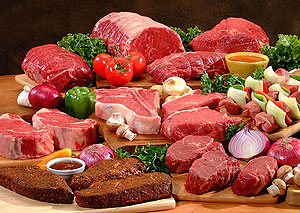One would have known from the international news that currently there is an ongoing outbreak of EHEC infection in Europe, due to which, till date more than 17 people have died and many more are infected.


One would have known from the international news that currently there is an ongoing outbreak of EHEC infection in Europe, due to which, till date more than 17 people have died and many more are infected.
Escherichia coli (or E. coli), is a tiny bacteria that normally lives in the gut of human beings and warm blooded animals. There are about 700 serotypes present. Normally it does not cause any sickness in men, unless the number multiplies many fold or resistance of the person is reduced due to some other infection or sickness.
But some of the strains like EHEC(Enterohaemorrhagic Escherichia coli) 0157:H7 can cause severe fatal illness in man. The numbers given to the strain of E-coli are based on the type of flagella present on its surface, (part which enables its movement) and are useful to trace the strain in case of an outbreak.
Undercooked or raw food contaminated by EHEC is the main source of infection in a person. The source of infection can be both, contaminated meat or vegetable products. Raw or undercooked meat particularly beef carries a high risk of infecting a person.
Sprouted grains are getting very popular for their high nutritious content. But if the seed used for germination is contaminated and not washed thoroughly before being used, carries risk of infecting an individual. Similarly, salads which are not cleaned very well can carry E.coli and infect an individual.
When somebody is infected, the features of the illness can begin in 2 to 4 days up to maximum 10 days in exceptional cases. After ingestion, the microbe releases a toxin in the gut, which triggers off the symptoms. Onset is with severe abdominal cramps along with diarrhea. There may be blood mixed with the stools due to severe inflammation of the inner surface of intestines. In some cases, there may be mild fever initially.
The toxin liberated can damage the blood platelets (which help in clotting) and cells of other parts of the body, also causing bleeding from other sites. Usually the infection may subside spontaneously without any antibiotics in many cases.
In fact antibiotics are contraindicated in this infection, as it is said that the bacterial wall may be damaged by antibiotics causing release of more bacterial toxins. Their use is restricted only if somebody develops sepsis. Hence supportive care by means of perfusions and blood transfusions remains the mainstay treatment.
People who are severely sick, particularly children and elderly can die if there is severe dehydration or development of HUS (hemolytic uremic syndrome). Here, there is development of liver and kidney failure which is often fatal.
Therefore it is important to take preventive measures against development of such a potentially fatal infection.
Contamination of food has to be avoided at all levels of food handling. One has to be careful about handling the carcasses of dead animals. The table where meat is laid out, the knife used for cutting and the containers used for keeping the raw meat all need to be kept very clean.
Similarly any vegetable used for food should be washed thoroughly, particularly with hot water if it has to be consumed raw.
The bacteria can survive at temperatures ranging from 7 to 70 degree Celsius; hence food items kept in the refrigerator should be heated adequately before being reused.
When cooking, the food items should be cooked sufficiently to the core. Milk products should never be used raw as there is a high risk of contamination of many kinds of germs in them. Boiling and pasteurization is vital before they are used in any way.
It is important to maintain very good hand hygiene while cooking, serving and eating food to prevent infections like EHEC.
It is only after adopting such strict hygienic measures; one can enjoy a meal without having to bother for such infections.


